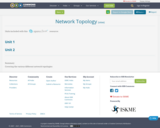
Covering the various different network topologies
- Subject:
- Applied Science
- Education
- Material Type:
- Homework/Assignment
- Date Added:
- 05/10/2018

Covering the various different network topologies

Are you struggling with internet breakdown? If you are using your friend’s Wi-Fi to find out how to fix the internet, you are exactly where you should be. This is a complete guide about resolving the issues that break down the internet connection.
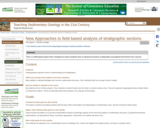
The project involves measurement of stratigraphic sections in the field and completion of a report that summarizes the nature of the section and a variety of interpretations. It includes data collection, separate interpretations of depositional processes and paleoenvironments, use of cut slabs and thin sections, and the use of mock expert "consulting" sessions with groups of students.
(Note: this resource was added to OER Commons as part of a batch upload of over 2,200 records. If you notice an issue with the quality of the metadata, please let us know by using the 'report' button and we will flag it for consideration.)
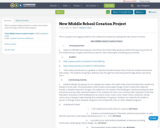
This is a project asking students to create a new school and to be unique with how they design it.
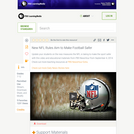
The NFL kicked off its new season last night with new safety measures that may lessen the chance of injury for players. Video, teacher page, and student handout included.
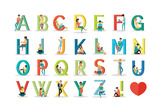
Students will complete this Softchalk lesson to learn to use this collection of tools to facilitate efficient, effective use of technology in the classroom. After completing this lesson, you will be able to:Find resources on the Newell-Fonda websiteUse your MacBook to access online resourcesNavigate Google ToolsUnderstand Infinite CampusSelect applications in Self-ServiceUtilize online and staff resources

Students will complete this Softchalk lesson to learn to use this collection of tools to facilitate efficient, effective use of technology in the classroom. After completing this lesson, you will be able to:Find resources on the Newell-Fonda websiteUse your MacBook to access online resourcesNavigate Google ToolsUnderstand Infinite CampusSelect applications in Self-ServiceUtilize online and staff resources
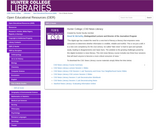
The digital age has created the need for a new kind of literacy-a literacy that empowers news consumers to determine whether information is credible, reliable and truthful. This is not just a skill; it is a new core competency for the 21st century. So-called “fake news” is hard to spot and spreads easily, leading to disagreements over basic facts. The antidote to the growing challenges posed by this digital revolution is news literacy. This mini news literacy course includes two three-hour sessions that will teach anyone to become a more critical consumer of news.
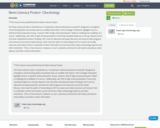
**This resource was published by the News Literacy Project.The News Literacy Project is identified as a “nonpartisan national educational nonprofit” designed to strengthen critical thinking skills and actively seek out credible information. NLP’s strategic framework highlights that in a Stanford History Education Group research, 96% of high school participants “failed to challenge the credibility of a source.” Additionally, over 50% of high school participants “incorrectly classified evidence as ‘strong.’’ Based on this and other educational research findings, NLP’s aims to advocate and equip educators and learners with programs and resources to promote media literacy. Users have the option of subscribing to NLP to receive up-to-date resources and research that is conducted. Further information can be found here: https://checkology.org/Cost and other restrictions: This is a free resource. However, to use it, educators and learners will need to provide an email address and other contact information.
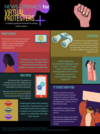
Provides news literacy tips for virtual activists.
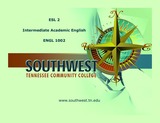
This module will cover Current Events, Paragraph writing,
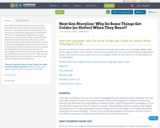
In this high school physical sciences unit, students investigate why some substances absorb heat when they react, while others release it. Students first solve the mystery of where the energy goes in endothermic reactions by examining salt dissolution and using magnets as models for bonds. They then expand their investigations to look into where the energy comes from in exothermic reactions. The model they continue to develop using magnets, helps them account for why breaking bonds absorbs energy from the surroundings and forming bonds releases energy back into the surroundings. The end of the unit naturally motivates a new question to pursue in future units, “Why are some types of particles more attracted to one another than others?"
nextgenerationstoryline.org
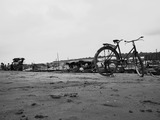
Design
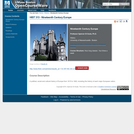
This course covers the political, social and cultural history of Europe from 1815 to 1900, including the history of each major European nation.
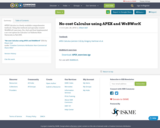
APEX Calculus is a freely-available comprehensive textbook. Using this textbook and specially created WeBWorK exercises, Drs. Ault and Goel implemented a no-cost option for Calculus I at Valdosta State University in Fall 2015.

Tabelle zur Erklärung und Wiederholung des Nominativs, inklusive Übung zu den Artikeln im Nominativ.
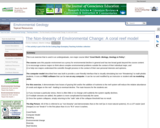
This is an exercise that is used in an undergraduate, non-major course titled "Coral Reefs: Biology, Geology & Policy". The course uses this popular environment as a proxy for environmental decline in general and has two broad goals beyond the course content: 1) to encourage science majors to think about complex environmental problems outside the context of their individual major, and 2) to help non-majors understand the scientific thought process in the context of their own personal interests and opinions.The computer model described here was built to provide a user-friendly interface that is visually stimulating but non-"threatening" to math-phobic students. It runs on FREE software that can be run on any computer. It can be run and modified by an instructor or student with no modeling skills.For this exercise, it demonstrates how losses of grazing fish and/or the addition of nutrients to the reef system will reduce the relative abundance of corals and algae on the reef - leading to eventual decline. The main lessons for the students are:1) If you increase a particular stress, there is often little or no change until suddenly the system rapidly declines.2) If multiple stresses are added, the pattern is more complicated but basically the same. 3) Once the system collapses, simply returning to the "safe" side of the collapse threshold has no result.The Big Picture: All of this is referred to as "non-linearity" and demonstrates that on the reef (as in most natural systems), it's a LOT easier (and cheaper) to not "break it" in the first place than it is to "fit it" once it crashes.
Coral Reefs
Computer Model
Modeling
Environmental change
Diversity
Reef Decline
Anthropogenic Stress
(Note: this resource was added to OER Commons as part of a batch upload of over 2,200 records. If you notice an issue with the quality of the metadata, please let us know by using the 'report' button and we will flag it for consideration.)
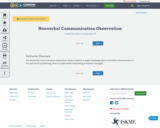
The Nonverbal Communication Observation allows students to apply knowledge about nonverbal communication in the real world by observing others in public while interpreting nonverbal messages.

To prepare for this assignment, the students read and discuss the article "Lying with Maps," which describes different ways to display quantitative attributes on maps, and argues (in part) that map authors need to be aware of whether they are appropriately representing their data through choices of symbols and colors. The students apply these ideas through making maps of three quantitative characteristics of New Jersey's population: total population, racial distribution, and age distribution. They summarize their efforts through a written description of their mapping choices to justify why they opted for certain symbology choices, and why they didn't choose other options.
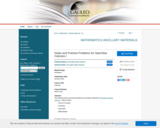
The following notes and practice problems are ancillary materials for OpenStax Calculus Volume 1. Topics include:
Limit of a Function
Continuity
Derivatives
Differentiation